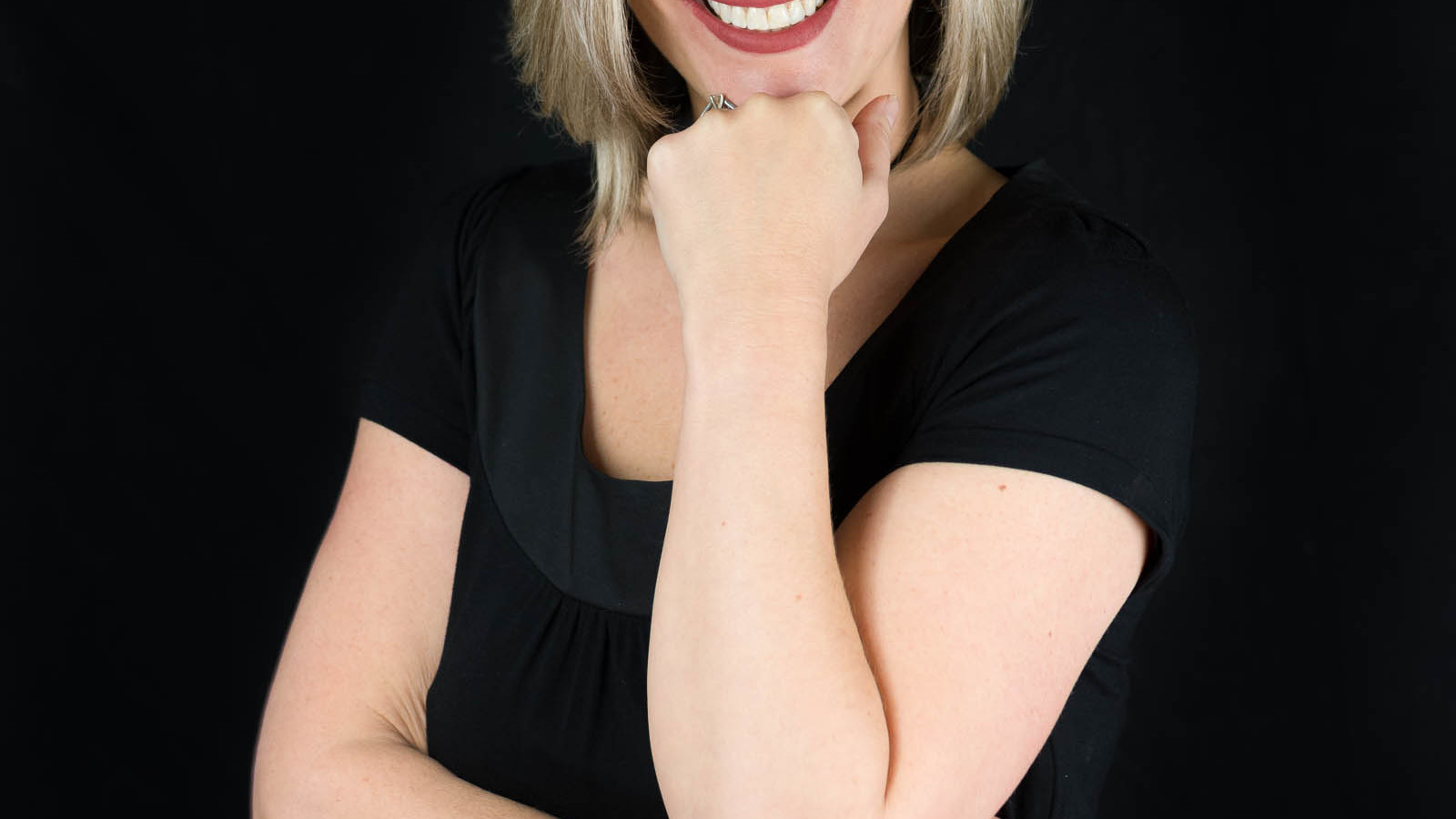Most of us have suffered from our mental health throughout the pandemic; it has given us the opportunity to reflect on issues that before, we didn’t even know we had. We all live busy and, at times, stressful lives, but it is important that we take the time to slow down and listen to what our bodies and minds are telling us. We talk to Angel Buster, who explains how we can improve the relationships we have with ourselves in order to fully understand how to overcome our mental and physical issues.
1. Angel, as an introduction, can you tell us a bit about the background of Lifeworld Coaching?
Lifeworld Coaching has unfolded parallel to my own personal development path. In essence, it has been about my own journey, relationship to myself, and to the world around me. In 2010 I launched an early version of the ‘system’ which focused on mental well-being and happiness. I had just finished the Co-Active Coach Certification program and was looking for a next step to deepen my way of coaching and support others to grow. I chose two paths, the first was a Core Energetics therapy training, and the second was an Existential Psychology & Psychotherapy training. Both of these have contributed significantly to what has now become ‘Lifeworld Coaching.’ I’d like to briefly explain how each contributes to the philosophy of Lifeworld Coaching. Core Energetics is one of the earliest forms of body psychotherapy which focuses on three levels of the self: the mask, the lower self, and the higher self. It utilizes character structures to look at how patterns of being were formed, in the early environment, and are still forming through certain beliefs and images that we hold. Existential Psychology and Psychotherapy focuses on our everyday lived experiences and being-in-the-world through existential themes like freedom, choice, responsibility, authenticity, belonging, death: essentially our lived experiences which lie on the boundary between Self, Other & context.
The lifeworld is a concept from phenomenology and existential therapy which is about the self in relationship with itself and with others in a variety of contexts and roles. If we fuse or weave these ideas together we arrive at a variety of possible ‘lifeworlds’ to explore with clients: the physical lifeworld (being in the physical world and being a physical body), the personal lifeworld (which includes a relationship with the self), the social lifeworld (which includes a relationship with others), the spiritual lifeworld (relationship with a deeper sense of self)– and the interdependency between them.
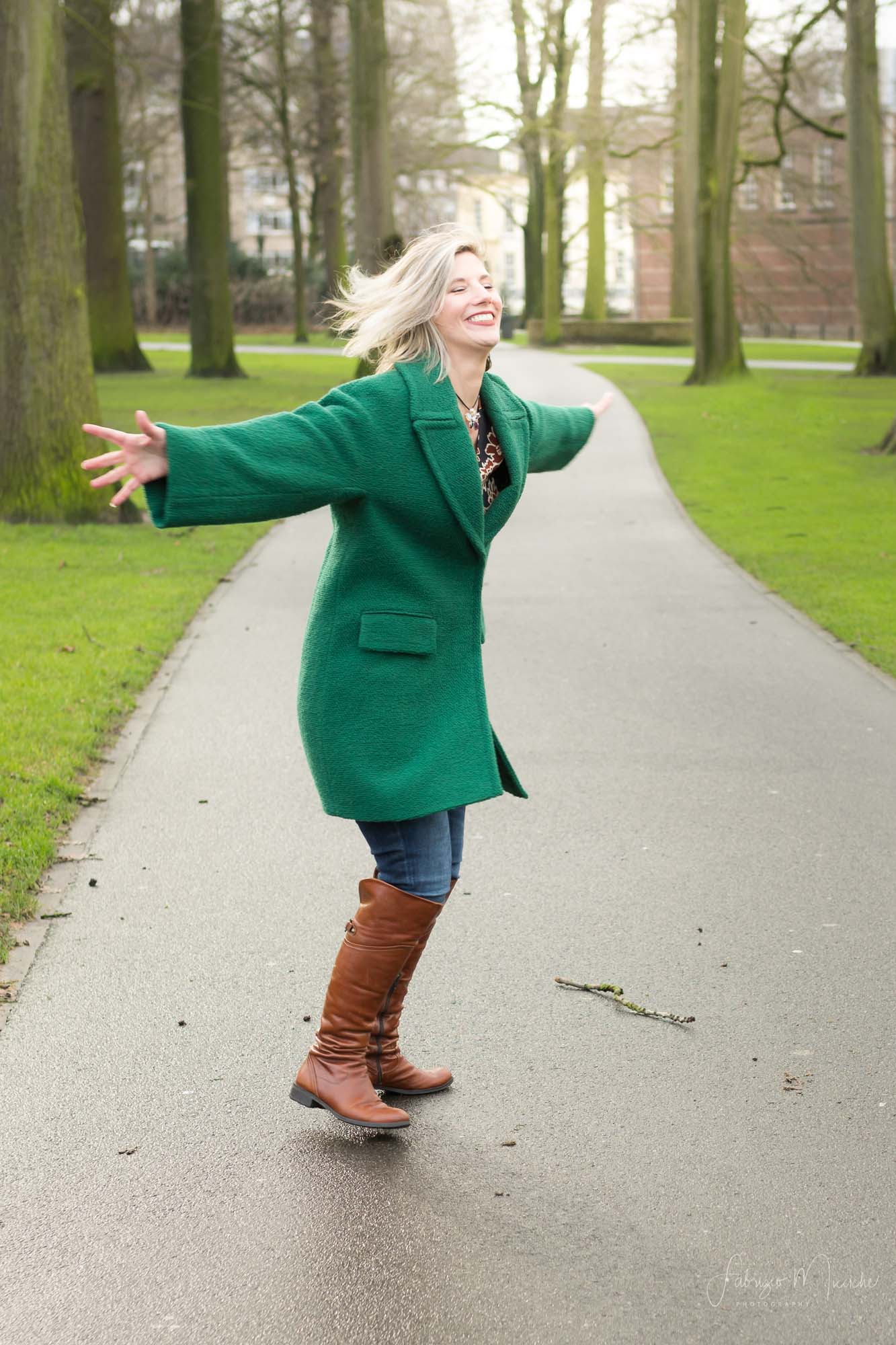
2. When did you realise coaching and therapy were your passion?
Before I moved to the Netherlands, I graduated with a degree in psychology in 2001. I started coaching before training as a therapist. Although I considered myself a ‘good enough’ coach, I didn’t like to be ‘stuck’ in the coach role. I wanted flexibility to be able to move from past-present-future, flexibly without any ethical violations. After working with senior leaders dubbed as ‘toxic’ or ‘narcissistic’ as a coach, I realized that what was needed to support transformative change, lies more on the crux between coaching and psychotherapy. It was this desire, combined with the intensive work I did with senior leaders in organizations which made me want to expand my repertoire of expertise to have a more significant impact. Thus in 2012 I started to bring these two together in my way of working with others through additional training mentioned above.
3. What is your unique approach?
Our approach is embodied, and dialogical – it teaches coaches a way of being with themselves and therefore, also their clients. It is perfect for coaches who start coaching and become stuck because they encounter themselves and feel uncertain. Due to its high emphasis on integrity and authenticity, coaches will be working to discern and develop their own resources and examine how they get in their own way, to break unconscious patterns in what they do, think, or say, in order to fully step into their unique power as a coach. The system is integrative, weaving eastern and western psychology into a system for working at all levels with clients. And in addition to shifting awareness through skills practice, coaches can also become trained in how to use and integrate the Lifeworld reports, which measure energy, resources and blockers across aspects of self, into their coaching-therapy practice. The Level I Lifeworld Coaching Certification – is a comprehensive, holistic approach to coaching resilience & resonance, allowing coaches to focus on physical, emotional, energetic, mental, and spiritual aspects of the person in order to help your clients be the best versions of themselves.
Coaches and therapists broaden skills with existential, embodied and dialogical approaches, encompassing both inter- and intrapsychic theories of identity development. Not only do you up your knowledge and skills for working with stress, resilience, and resonance – an unmissable addition to those of you focused on wellbeing, happiness, and fulfillment coaching – but with our additional trauma focused, embodied approach, you learn how to get clients unstuck at a more fundamental level.
4. You mention Level I, what levels are there are what is the difference?
So far we’ve been talking about Level I, which introduces coaches to the framework and orientates them to its theoretical underpinnings and the way of coaching, according to our philosophy. But indeed, we have a Level II certification which trains and certifies coaches and therapists to work with our Diagnostic-Dialogical Development tool, the Living Lifeworld report. This report, which we more fondly call 3D, provides a complete, dynamic measure of resilience & resonance within various lenses of identity. Visually the reports are compelling, allowing you to see sources of stress, energy patterns, polarities, potentially harmful internal thoughts, and resources and blockers to feeling fully alive. Whereas during the Level I program, you get to experience it first-hand, work with your own stress indicators, resilience capacity, and your own resources and blockers, Level II supports those who want to use the reports with their clients. Level II also has as a personal coaching requirement of 10 hours with an already-certified Lifeworld coach.
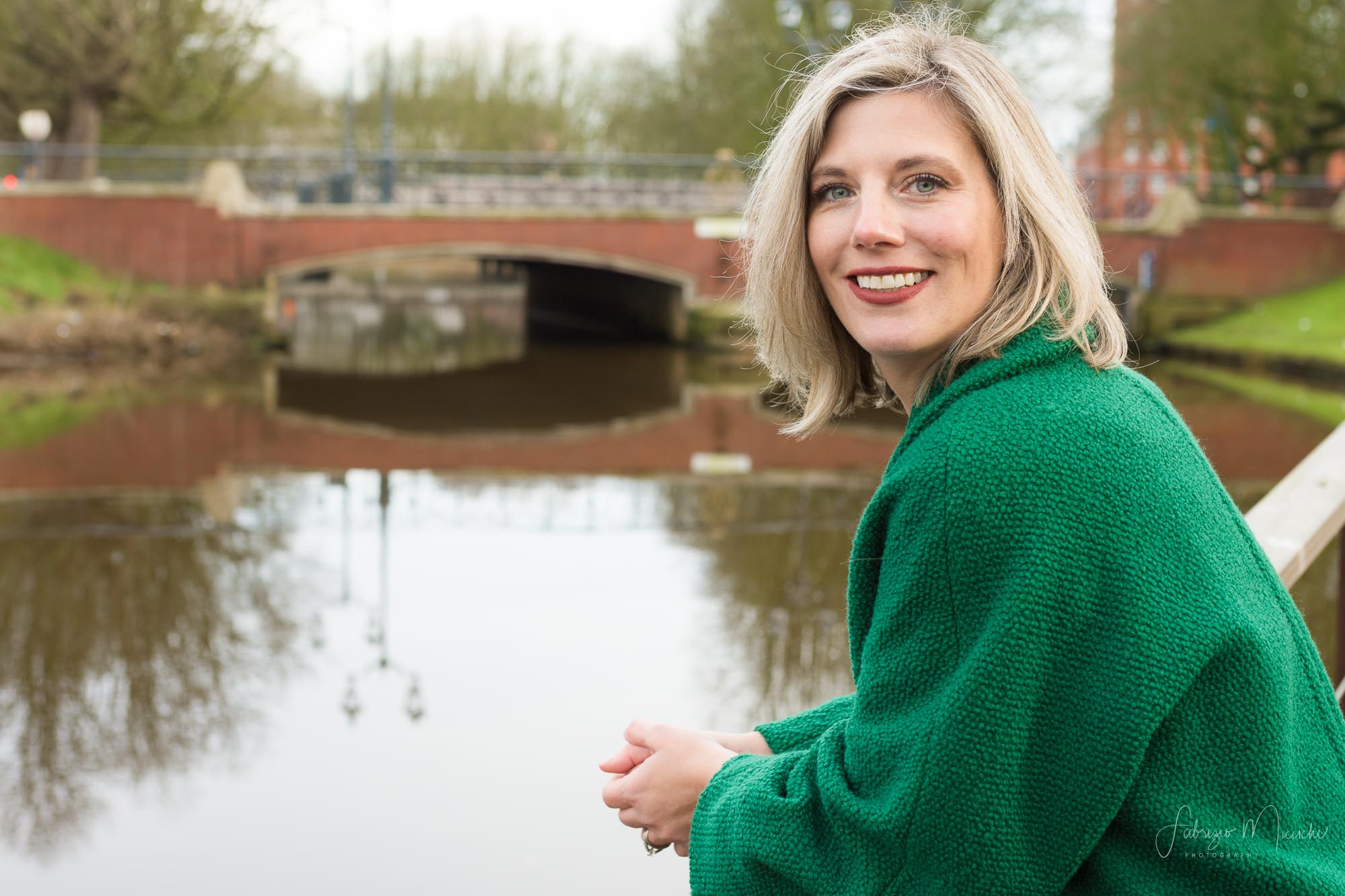
5. So, you have two Levels of certification, with the second level providing access to a single (3D) report which focuses on energy, stress, resilience and resonance?
Yes, however, the full report actually comprises five sub reports, which can be accessed and purchased separately. Each serve a different purpose in our 3D process.
These are:
1) Core Needs & Beliefs, which allows you to work with the influence of the past on identity development and how a person potentially sees the world
2) Core Energy & Movement, which uses body psychotherapy theories, polyvagal & stress theories, as well as character structures, yoga psychology, and more to paint an energetic picture of self, which can be worked with using physical techniques.
3) Personal Resilience, which focuses on identity and self-concept, helping you gain a sense of how a client views themselves.
4) Relational Resilience, which focuses on how a client potential views themselves in relationship with others. This report extracts and synthesizes information from other areas of the report to determine where potential resources and blockers are to relating to others in a healthy way
5) Resilience & Resonance, which summarizes and adds additional dynamic graphics, including to help you see where clients most vulnerable stuck positions are.
All five personalized reports, are generated based on a single questionnaire, and can be provided to the coach as a means for entering a dynamic, embodied, dialogical relationship with their clients in order to allow the unfolding of what needs attention. Each report easily provides 3-6 months of work with a client, and all five reports a total path for growing a client’s resilience and resonance. Clients learn to see the inner dynamics of their selves (through the highly illustrative graphics – and mirroring with the coach-therapist) and how this interacts with and affects their relationship with others. In other words, coaches become highly competent in the relational aspect of working with others – and receive a structure which makes it easy to offer modules, paths, and workshops to help increase revenue. And, if this isn’t enough, we’ve recently been approved for 48 continuing education units through the ICF (International Coach Federation).
6. As an innovative brand you are using science-based methods as health-related research. Tell me more about your latest report.
Well, we don’t (yet) conduct the health research ourselves, but instead have based the design of the program and whole system on scientific, health-related research reports – as well as other sources of knowledge. The reports we provide are dialogical, that is, their meaning can only be interpreted in relationship with a coach or therapist. Unlike an ‘assessment’ tool which is a much more ‘telling’ approach – ‘This is what you answered, this is what it means based on our method’ the Living Lifeworld reports use a 3D approach which emphasizes the importance of the relational and contextual construction of meaning. So depending on the level of development of the coach, the quality of the coaching relationship, the context, the openness and vulnerability of the client, the questions which are asked, the space which is provided to reflect – will all influence what the client takes away with them and how they then enter into further dialogue with themselves and the world around them.
7. For whom do you recommend coaching training?
Well, because coaching training is about being able to skillfully connect and communicate with others, as well as helping others to reach their potential, I would say it’s not limited to coaches. Coaching training also includes self-awareness, and everyone can use this. So it could be an excellent first step into discovering if you want to work with others, but anything learned in a coaching training is definitely transferable to other parts of your life. You often work on listening skills, questioning, curiosity, figuring out core beliefs and values, stress triggers – so these things are also life skills. I remember after completing my first coach training I noticed a tremendous impact on my capacity to listen and be more fully present in my relationships. As our own program focuses on growing resilience and resonance, it is also a good way to learn how to manage and restore energy (a sort of post-lockdown emotional detox) and gain insights into deeper patterns which may continue to keep you stuck. All in all, given the shifting global landscape and uncertainty of the future workforce, I think it’s a great time right now to work on yourself in this way, regardless of whether you become a ‘coach’ as this training is transformative in nature and prepares you to be the best version(s) of yourselves.
8. In your opinion, since the pandemic, how has the coaching sphere changed?
The coaching sphere is so broad that it’s difficult for me to see at this point how it has changed in its entirety. However, I do see more offering for embodiment coaching, wellbeing coaching, grief coaching, mental health, or mindfulness coaching – in other words, the coaching sphere is in the process of changing and shifting based on the needs of the clients and what the pandemic has unsurfaced. More than ever people are having to deal with shifting identities, contexts and relationships. I think that the pandemic is an attempt at restoring balance to humanity’s current predicament: an overemphasis on the external world, where I believe we had become too attached, avoiding the internal world. This process has made space for our inner world: those who were unprepared for this will seek support in the form of coaching, therapy, or an alternative form of healing. It’s also a tremendous period of grieving and letting go. We , most likely never go back to the way things were and many of us have lost jobs, family members, friends, have become ill and are still recovering from something. I know, for example, relationships and marriages were under pressure during lockdown, as there were few possibilities to ‘escape’ outside the home. This meant facing things which may have been ignored for a long time. So in this respect I can imagine that there is a growing need for relationship coaching, or at least coaches who are able to work systemically.
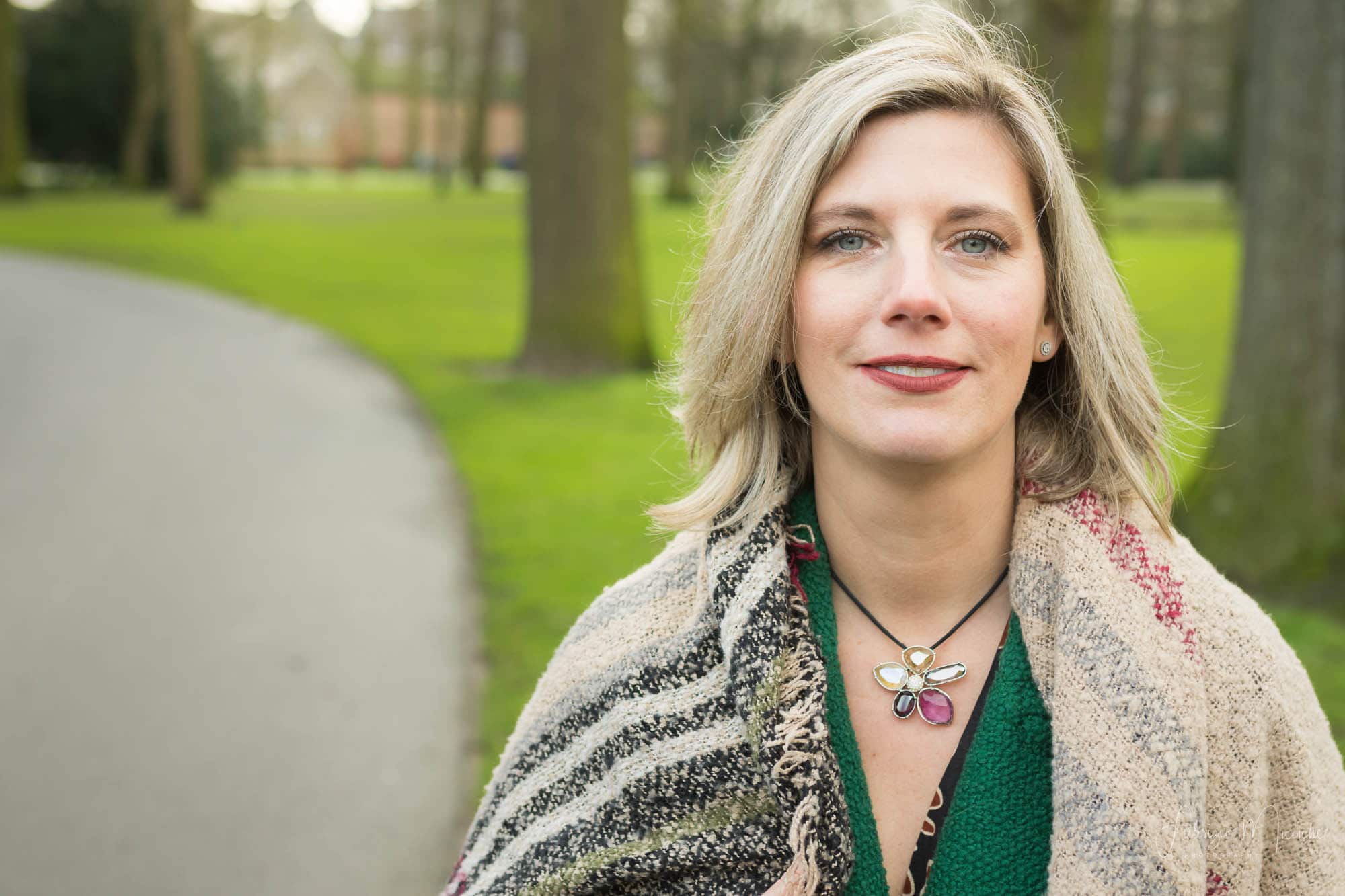
9. Do you think the value of coaching has risen during lockdown?
I think the value of good coaching has definitely risen during the lockdown. At least here in Europe there is a growing need for holistic health providers, which would include coaches and therapists, those who are able to work with people at all levels in order to support them through a personal crisis or challenge.
10. What can you say about the general post-pandemic mental health among people? Do you think the number of challenges has risen?
I have a private practice where I see about 25-30 clients per week. It is my sense that people are struggling because they are encountering themselves and their relationships more as I previously mentioned. This is the reason why we have the sense of having more mental health challenges. It’s because there are fewer ways to distract ourselves and to take us away from our thoughts. And if our thoughts are unsupportive and negative, then we start to feel more of this. They may have been there all along, we just didn’t hear them, for the ‘noise.’ So I think that the number of challenges is likely the same, they’ve only surfaced because of the pandemic and the context. In this case, the pandemic acts as a mirror to what we were unwilling to look at – and now, it demands our attention: we must look in order to grow as a whole society. We live in a world with so much ‘doing’ and ‘busyness’ that we have little time to stop and reflect on who we are and who we want to be. We may not be completely happy in a relationship, but we can go meet up with friends, go out to eat, go shopping, go on holiday, Consider this analogy: we may have an aspect of ourselves which is jealous but it is not until we are in relationship with someone and this part of ourselves is triggered or activated that we actually realize or feel our jealousy; otherwise it lies dormant, resting, and waiting for the ‘mirror’ which will bring us into dialogue with it. If we allow the pandemic to teach us what we struggle to deal with within ourselves, we can choose what kind of support we need. If we deny or refuse to admit that it does anything to us, then we carry on the same way and nothing changes.
11. As a professional, can you give some tips on how to deal with all these mental health challenges in these uncertain times?
As I mentioned before, I think the mental health challenges have always been there, but indeed it is the uncertainty (which was also always there, by the way) which is causing a lot of anxiety and stress for some people. It is also the confrontation with old themes and patterns related to control and freedom, which we encounter in our autonomy phase of development. Did we have parents who were controlling and set rigid boundaries or did we have parents who gave us a lot of freedom and choice in what we wanted and in who we were becoming? This is part of entering into a more dialogical relationship with ourselves and to feel safer with what’s happening around us. I hear a lot of people saying that they have no control that they just have to follow the rules. For some types of people, this is extremely challenging. People who always use control or need to be in control are going to struggle much more than other people. It brings up feelings of helplessness and powerlessness – that there is really nothing that can be done in this situation. On the one hand this is true, unless you want to be a revolutionary, protest or demonstrate, which of course, are options, the only sphere of influence is within yourself, and perhaps your immediate environment.
In uncertainty and instability the only thing that one can do is create a sense of stability within the self. In reality complete stability is unachievable because we are constantly in a state of becoming – however, the more stability, through the development of resources, which can be created, the more one is able to stand in the eye of the storm and remain calm and grounded. Entering into dialogue with ourselves, which the Lifeworld coaching system helps with, can provide a sense of coherence.
If I need to summarize this into a few tips:
Develop embodied awareness
Take care of your ‘self’ and needs
Set clear boundaries and dare to say no
Develop meaningful connections
Listen better to who is speaking in your mind
Dare to say what comes from your heart
Develop a reflective practice
Slow down, breathe
Be more, do less
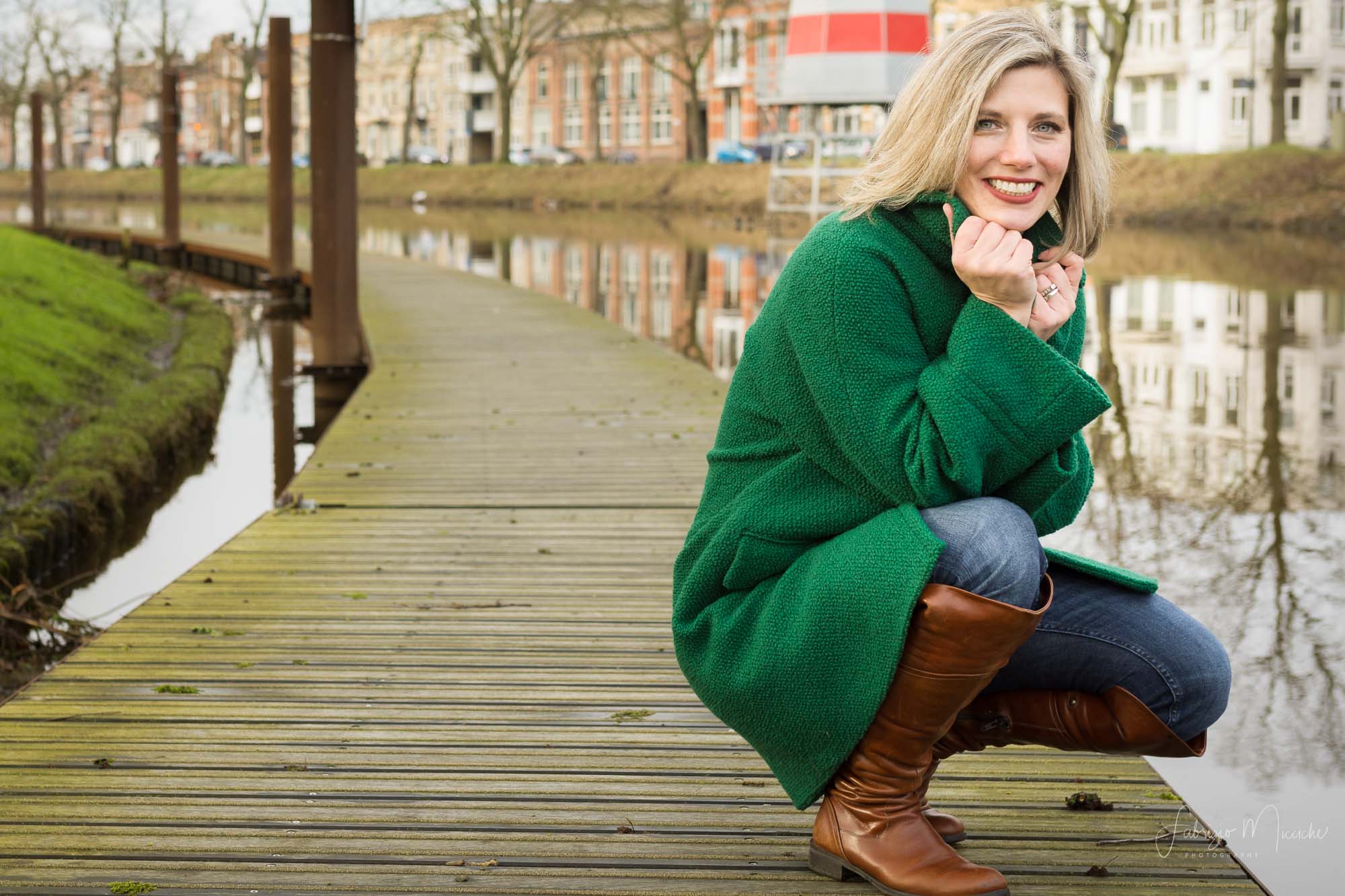
12. What is your take on the future of coaching?
I see coaching evolving to focus on mental health and wellbeing and helping people to develop the resources to deal with uncertainty and change. I really see this as a support for a global shift of consciousness. I think that coach training programs can go deeper and help coaches to become more dialogical and reflective, to be able to deal with any kind of coaching context or client need. I see a rise of the terms ‘holistic’ and ‘whole’ as we attempt to shed the tendency to compartmentalize and break things down in the world– a Lifeworld Coaching approach means that a coach is able to move flexibly across the ‘lifeworlds’ of the client, while still remaining ethical, authentic, and effective. This shift mirrors the changes at the societal level as we more and more attempt to reconcile the internal and external. As we can never fully know ourselves without the support from the other, I see coaching as an absolute essential part of the future landscape of work.
13. How can our readers contact you and follow you on social media?
We can be found on Facebook, LinkedIn and Instagram, all under Lifeworld Coaching.
14. Finally, can you please share your motto and your favourite quote?
“Work in the invisible world at least as hard as you do in the visible.” – Rumi


